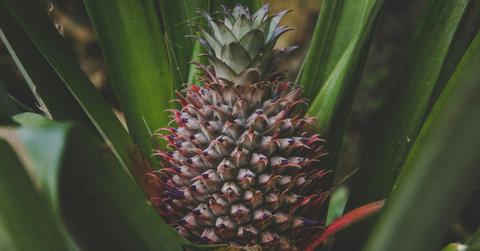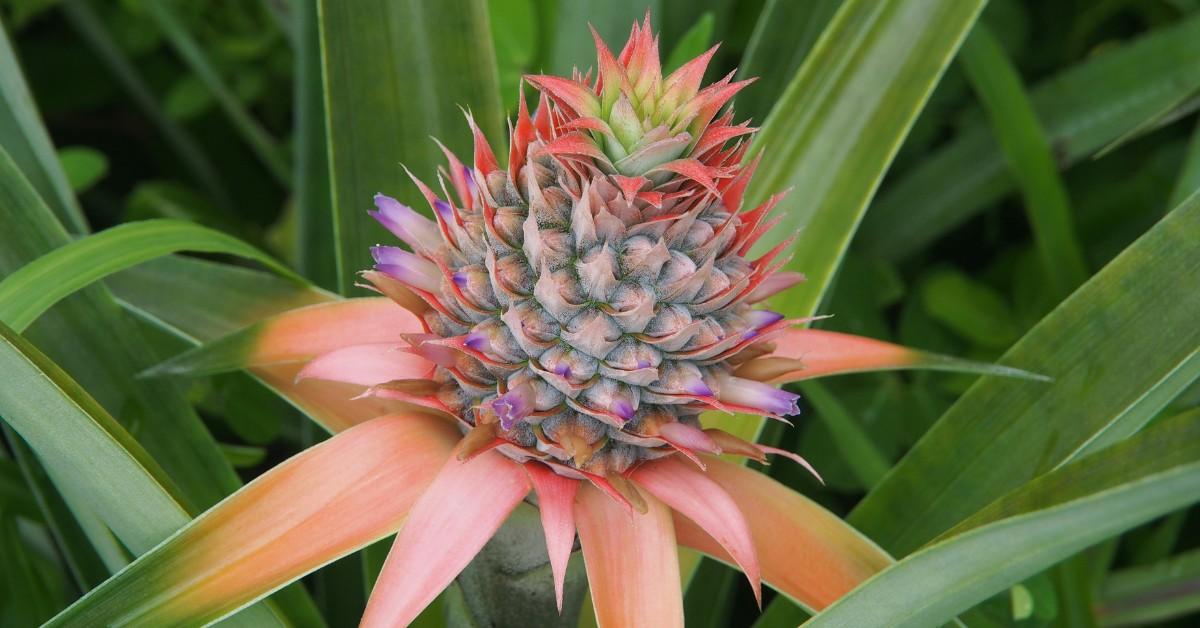How Growing Pink Pineapples Can Land You in Legal Hot Water
Growing these fruits can cost you big time.
Published April 10 2025, 4:34 p.m. ET

Pink pineapples sound like an even more exotic version of the tropical fruit that people use to make everything from cakes to cocktails. But, the fruit is slightly different than its traditionally colored cousin in more ways than one. For example, trying to grow your own stash of pink pineapples in your home garden could actually get you into some pretty big trouble with the law.
Why is it illegal to grow pink pineapples? The reason may surprise you. Keep reading to learn more, including how it's actually quite hard for most people to grow these pineapples for themselves and what could happen if you get busted with the forbidden fruit in your yard.

Why is it illegal to grow pink pineapples?
The issue fans of the pink pineapple will run into when they try to create their own endless supply of the fruit is a copyright based one. That's because Del Monte actually owns the rights to the fruit, and they have The Del Monte Pinkglow® pineapple trademarked, which means nobody else is allowed to grow it.
What's more is that the fruits can only be grown in a certain location, according to the Gardening Know How blog.
Farmers in Costa Rica are the only ones with the agricultural license needed to grow, harvest, and sell these pink pineapples.
But, even if you wanted to grow pink pineapples, you'd likely have a hard time. These plants are genetically modified to get their pink coloring, which doesn't come naturally in the wild unless there is a reduction of lycopene in the fruit.
Even that isn't enough to turn the yellow pineapples pink though, and the plants will also need to have an increase in the beta-carotene pigment at the exact right time in order for them to be able to produce that perfect color. So, unless you have the tools and experience to modify the plant's DNA yourself, you may be out of luck.
How are pink pineapples grown?
Knowing how much needs to go right in order for these plants to grow, you may be wondering how Del Monte manages to mass-produce them. To understand that, first, you need to know a little something about propagation. According to the Gardening Know How website, Del Monte's plants are all propagated using the crowns of an existing pink pineapple, which essentially creates a clone of each fruit.
That means that these pink pineapples can only be grown when you have the crown of an existing one.
To prevent people from doing that after purchasing a pink pineapple in a store, Del Monte removes all of the crowns from their Pinkglow® fruits before shipping them out to stores and distributors.
What are the risks of growing pink pineapples?
While the Gardening Know How blog says that people who attempt to grow pink pineapples run the risk of being sued, it doesn't look like there's any clear-cut information about what Del Monte has done to those the company has caught violating the copyright law.
However, a basic Google search shows that there's plenty of potential to end up with a costly case on your hands if you do get caught, with places like Kent State University saying that violators could find themselves facing six-figure lawsuits and even some jail time!
While the ethics of copyrighting a fruit may seem murky, it's clear that the risks are probably not worth the reward when it comes to illegally growing your own pink pineapples.